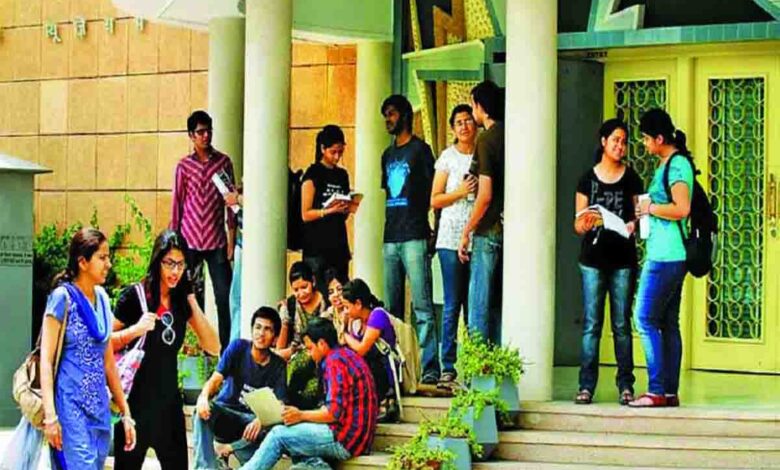Is class avoidance impacting education quality?

GUEST COLUMN
 Onkar Singh
Onkar Singh
Recently, in a matter pertaining to an incident of the year 2016, the Delhi High Court observed an imminent need to re-look at mandatory attendance norms in colleges and universities as the teaching methods have substantially changed post the COVID-19 pandemic and also remarked instead of penalising students for low attendance, there should be some encouragement to attend classes.
This comes at a time when some educational institutions are already reeling through the crisis of the growing tendency among students to abstain from classes and non-attending admissions. Furthermore, academics have been striving hard to bring class discipline for the overall good of the students from their learning and knowledge perspective as there is ample evidence of students suffering due to the illusion of self-learning accompanied by online learning or otherwise being better instead of formal learning in classes. A new debate has been triggered about the relevance of the academic framework mandating certain attendance requirements in the formal education system. Class avoidance is a serious challenge having numerous implications that will eventually affect society in due course of time. The deficiency in the education levels, competencies, and abilities of human beings will make it difficult to sustain and take civilization forward.
Delving further into the issue shows that for quite a long, the education system has relied on the teaching-learning processes carried out in the physical classrooms on the campus of educational institutions which is also corroborated historically through India’s ancient Gurukul and Ashram system. Leaving aside the exception when the world was engulfed in the COVID-19 pandemic, the conduction of education processes has been perennially requiring brick-and-mortar campuses for classrooms, laboratories, etc. Unfortunately, the adversities arising out of the learning gaps due to the online conduction of academic activities during the pandemic are still being felt by the students at respective levels. Also, at times, the quality of deliverables from the distance education mode is found to have certain limitations that cannot be overcome without face-to-face teaching-learning processes.
Presently, the perceptible decline in student rate of attending classes necessitates contemplation for identifying the reasons and strategies for corrections to make classrooms sought-after places for the students and their capabilities being commensurate to the qualification acquired.
Reasoning class reluctance
Education seekers must have some purpose for enrolling in educational institutions for higher qualifications because formal education should essentially culminate in facilitating the individual for any purpose as per their goals. There are two categories of students namely one who pursues education with a purpose and the other who pursues education for social reasons and simply remains enrolled in the education system without any specific purpose. Thus, the education system has distinct types of students who are interested and those who are not interested in seeking knowledge and enhancing their competencies. Keeping aside the premier institutions, the growing disinterest among the students in the formal education system can be attributed to the quality of the curriculum, insufficient employment opportunities commensurate to the respective qualifications, reduced rigour in theory and practical classes leading to boredom, lack of interest in classes, absence of creativity in classes, lesser focus of teaching-learning processes on imbibing knowledge, teaching aimed at merely passing the examination, dissatisfied and overburdened teachers, the competence of teachers, diminishing teacher-student interactions inside and outside classrooms, inadequate salary to teaching and non-teaching staff, distractions due to social media, inadequate infrastructure and services, poor health, etc. Alongside, the students have a feeling that given the fees paid by them, they have the privilege of deciding whether to attend classes or not and the institutions do not have any right to penalize them for non-participation in classes.
Besides, the ubiquitous availability of digital learning content and the good reach of the internet has facilitated self-learning opportunities, but in the majority of instances, the inadequate abilities and poor performance of the students resorting to such self-learning raises eyebrows. The situation becomes precarious in self-financed institutions, where the intentions of minimising spending and maximising savings are predominant. Also, in certain instances, it is not possible to meet the expenditure in self-finance mode, but the institutions continue with the hope of admissions in the future. The quality of teachers in such institutions is neither up to the mark nor adequate and the programs are not run as stipulated. Consequentially, a lackadaisical approach towards running the classes and laboratories. It suits some of the students and the institutions alike and the unethical practices continue. There is evidence of students pursuing their business/services/other activities during class hours. Such students pay fees and aspire to pass examinations by any means without attending classes. These practices vitiate the integrity of academic processes and catalyze further manipulations. General observations show that apart from other factors, the tendency to skip classes is also related to conscience, sensitivity towards discipline and personality traits inculcated in children during upbringing by parents and family.
Implications of class reluctance
Class reluctance among students has serious implications for their insufficient abilities and poor employability. Missing learning opportunities at respective ages are yielding inadequate competencies in youth and is the loss of demographic dividend within the nation. At the same time, the purpose of education is to create educated human resources for furthering knowledge creation, gets affected adversely and endangers the sustenance of civilization and its growth. The class reluctance is promoting fast-pervading online education and replacing offline education with online one has inherent limitations due to the prevalent digital divide and socio-economic diversity which may deprive some of access to education. Any gaps in equity in access to education because of different modes of education will have a significant impact on the overall growth of all sections of society.
Way forward
Linking academic success to class attendance and assigning due weightage to the same where it is not there and following it religiously where it is already there can give reasonable respite to the growing menace of class absenteeism. Simultaneously, the quality of teaching-learning interactions ought to be enriched so that the students are tempted to come to classes. The learning ambience must also be improved upon to create compelling circumstances for students getting repugnant to miss any learning opportunities. To ease the situation and ensure students’ participation in the learning processes, the synergetic efforts of the education providers, regulatory framework, students, and parents are critically required before the formal education system loses its sheen. Unshackling the mandatory framework of attendance does not seem to be a way out for holistic improvement of the education system and the educated ones for nurturing the knowledge economy. Stringent measures for improving the quality of education are the need of the hour for capitalizing on the demographic dividend before it evaporates, and nothing could be better than the disciplined student centric on campus teaching-learning processes.
(The author is the vice chancellor of Veer Madho Singh Bhandari Uttarakhand Technical University. Views expressed are personal)






